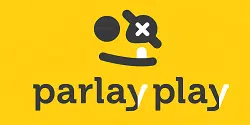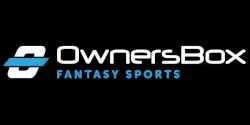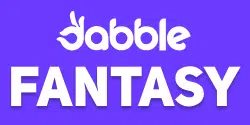Illinois Daily Fantasy Sports
Illinois daily fantasy sports sites are legal and open to fans 18 or older.
Lawmakers have never passed legislation to legalize and regulate fantasy sports, but a 2020 Illinois Supreme Court decision provides DFS operators the legal protection they need to offer real-money contests to fans across the state.
The lax regulatory environment gives sports fans many choices in daily fantasy sites, but it also emphasizes the need for vigilance when picking where to play online. Read on for BettingUSA’s recommended Illinois fantasy sports sites, more information about the legal landscape, and everything else fans need to know about the IL DFS market.
Illinois Daily Fantasy Sports Sites
 Play $5, Get $50PrizePicks Promo Code: BUSA
$50 provided as promo funds, only for use on PrizePicks. Promo funds provided under this promotion must be played within 90 days of receipt or shall become null and void at PrizePicks’ discretion. Promo ends 12/31/25. Void where prohibited. If you or someone you know has a gaming problem, get help. Crisis services and responsible gaming counseling can be accessed by calling 1-800-426-2537 or online at www.ncpgambling.org. 18+ in most eligible jurisdictions, but other age and eligibility restrictions may apply. Valid only in jurisdictions where PrizePicks operates. See prizepicks.com/terms for full PrizePicks terms of service.
Play $5, Get $50PrizePicks Promo Code: BUSA
$50 provided as promo funds, only for use on PrizePicks. Promo funds provided under this promotion must be played within 90 days of receipt or shall become null and void at PrizePicks’ discretion. Promo ends 12/31/25. Void where prohibited. If you or someone you know has a gaming problem, get help. Crisis services and responsible gaming counseling can be accessed by calling 1-800-426-2537 or online at www.ncpgambling.org. 18+ in most eligible jurisdictions, but other age and eligibility restrictions may apply. Valid only in jurisdictions where PrizePicks operates. See prizepicks.com/terms for full PrizePicks terms of service.
 $250 First Entry RefundBoom Fantasy Promo Code: BUSA
Users must be 18+ years of age to play and deposit (19+ in Nebraska). T&Cs Apply. Gambling Problem? Call 1-800-GAMBLER. All users must have only 1 account. If a user is found to be less than 18 years old, their account will be banned and all their entries will be canceled and refunded. If a user is found to have more than 1 account, they will be subject to a ban at Boom’s discretion.
$250 First Entry RefundBoom Fantasy Promo Code: BUSA
Users must be 18+ years of age to play and deposit (19+ in Nebraska). T&Cs Apply. Gambling Problem? Call 1-800-GAMBLER. All users must have only 1 account. If a user is found to be less than 18 years old, their account will be banned and all their entries will be canceled and refunded. If a user is found to have more than 1 account, they will be subject to a ban at Boom’s discretion.
 50% up to $1000Underdog Fantasy Promo Code: BETUSA
18/21+, T&Cs apply. Concerned with your play? Call 1-800-GAMBLER or visit www.ncpgambling.org; AZ: 1-800-NEXT-STEP (1-800-639-8783) or text NEXT-STEP to 53342; NY: Call the 24/7 HOPE line at 1-877-8-HOPENY or Text HOPENY (467369) Learn more about Underdog Contests and how to identify highly experienced players at www.underdogfantasy.com/rules; Learn more about average results at www.underdogfantasy.com/average-results.
50% up to $1000Underdog Fantasy Promo Code: BETUSA
18/21+, T&Cs apply. Concerned with your play? Call 1-800-GAMBLER or visit www.ncpgambling.org; AZ: 1-800-NEXT-STEP (1-800-639-8783) or text NEXT-STEP to 53342; NY: Call the 24/7 HOPE line at 1-877-8-HOPENY or Text HOPENY (467369) Learn more about Underdog Contests and how to identify highly experienced players at www.underdogfantasy.com/rules; Learn more about average results at www.underdogfantasy.com/average-results.
 Free Entry + $100 Deposit BonusParlayPlay Promo Code: BUSA
18/21+, T&Cs Apply. Welcome offer is for players who make their first successful deposit to ParlayPlay. Following the deposit, you receive promo entry(s) that matches the deposit amount up to $100. The promo entry can only be used to enter up to 4-pick More/Less contests. If you lose the promo entry, your account balance is not impacted. The deposit promo entry(s) must be used within 7 days of deposit. After 7 days the free entry will expire. If you have concerns about managing your play on ParlayPlay or anywhere else, or if you’re concerned about a family member or friend, the National Council on Problem Gambling offers support through telephone or text. They can be reached confidentially (24-hours a day) at 1-800-522-4700. Or contacted on their website at https://www.ncpgambling.org/ or through chat at ncpgambling.org/chat.
Free Entry + $100 Deposit BonusParlayPlay Promo Code: BUSA
18/21+, T&Cs Apply. Welcome offer is for players who make their first successful deposit to ParlayPlay. Following the deposit, you receive promo entry(s) that matches the deposit amount up to $100. The promo entry can only be used to enter up to 4-pick More/Less contests. If you lose the promo entry, your account balance is not impacted. The deposit promo entry(s) must be used within 7 days of deposit. After 7 days the free entry will expire. If you have concerns about managing your play on ParlayPlay or anywhere else, or if you’re concerned about a family member or friend, the National Council on Problem Gambling offers support through telephone or text. They can be reached confidentially (24-hours a day) at 1-800-522-4700. Or contacted on their website at https://www.ncpgambling.org/ or through chat at ncpgambling.org/chat.
 $500 Deposit BonusOwnersBox Referral Code: BUSA
18/21+ to play. Terms & conditions apply. See ownersbox.com for full offer details. If you or somebody you know has a gambling problem, help is available. Call (1-800-GAMBLER).
$500 Deposit BonusOwnersBox Referral Code: BUSA
18/21+ to play. Terms & conditions apply. See ownersbox.com for full offer details. If you or somebody you know has a gambling problem, help is available. Call (1-800-GAMBLER).
21+ to Play, T&Cs Apply. Gambling Problem? Call 1-800-GAMBLER
Illinois fans have a wide selection of fantasy sports apps and websites to choose from thanks to the state’s lenient gaming laws that treat DFS contests as games of skill.
All the nation’s mainstream fantasy sports operators and many smaller niche sites are active in the Illinois market. However, the lack of a licensing regime makes it critical that fans choose DFS sites wisely.
Below are BettingUSA’s top Illinois fantasy sports sites, spanning a range of game types such as daily fantasy, proposition picks, and parlay-style contests. Each fantasy sports app and website listed below takes a unique approach to DFS contests, but all are safe, legal, and licensed in other states.
Illinois DFS Apps
- PrizePicks
- Boom Fantasy
- Underdog Fantasy
- ParlayPlay
- OwnersBox
- Betr Picks
- Dabble Fantasy
- FanDuel DFS
- DraftKings DFS
- Sleeper DFS
Illinois Fantasy Pick’em Apps
Fantasy pick’em apps in Illinois allow fans to make higher/lower predictions on athlete stats for fixed prizes.
Compliance with state and federal DFS laws require players to include at least two predictions in every lineup, similar to sports betting parlays. The difference is that pick’em fantasy apps focus exclusively on single-stat predictions for individual athletes.
So, while fantasy pick’em apps in Illinois may offer over/under predictions on a quarterback’s passing yards or a pitcher’s strikeouts, they do not offer full-game scoring totals or yes/no props.
Legal Issues for Illinois Pick’em Sports Apps
Pick’em fantasy apps operate in a legal grey area in Illinois.
In early 2025, Illinois Attorney General Kwame Raoul issued a press release advising fans to bet on the Super Bowl with licensed operators only and accused PrizePicks of offering “unlicensed sports betting in Illinois.”
The Illinois Gaming Board (IGB) also issued a cease-and-desist letter to PrizePicks (a fantasy pick’em app) and Bovada (an offshore sportsbook), essentially lumping them into a singular category of illegal wagering.
However, PrizePicks later explained it would continue operating in Illinois but cease offering its player-vs-house contests to residents. In their place, PrizePicks offers peer-to-peer pick’em contests in Illinois.
Peer-to-Peer Fantasy Pick’em in Illinois
Player-vs-house pick’em contests are the most questionable from a legal perspective since customers compete directly against the operator for payouts. That’s why fantasy pick’em operators have switched from player-vs-house to peer-to-peer contests in numerous states, including Illinois.
Fortunately for fans of the format, peer-to-peer fantasy pick’em contests still involve making higher/lower predictions and offer significant payouts.
Three prominent fantasy pick’em apps have switched to the peer-to-peer variant exclusively in Illinois:
- PrizePicks
- Underdog Fantasy
- Betr Picks
Illinois Fantasy Sports Law
Daily fantasy sports sites are legal but not regulated in Illinois. State law does not address fantasy sports, but their legality was an ongoing debate until the Illinois Supreme Court settled the matter with a 2020 ruling that found DFS contests to be games of skill.
The decision exempted fantasy sports contests from Illinois gambling laws and cleared the way for numerous operators to enter the market. The legislature still has the power to regulate or criminalize fantasy sports, but it has never passed a bill addressing the topic.
As a result, Illinois daily fantasy sports sites and apps operate free of any legality concerns.
The Supreme Court case that generated the decision (Dew-Becker v. Wu, 2020 IL 124472) originated from a FanDuel customer who lost a $109 head-to-head fantasy contest in 2016. The losing customer sued the winner under an Illinois law that allows individuals who lose money participating in illegal gambling to recover their losses.
Lower courts decided in favor of the defendant on the grounds that illegal gambling losses are only recoverable if the individuals wager directly with one another – which is not the case on FanDuel.
The Illinois Supreme Court also ruled in favor of the defendant but disagreed with the lower courts’ reasonings. Instead, the Illinois Supreme Court ruled fantasy sports contests as games of skill and therefore not subject to the state’s illegal gambling laws.
How an Old Attorney General DFS Opinion Impacted Sports Betting
The Illinois Supreme Court ruling countered a 2015 Attorney General opinion that DFS contests meet the state’s definition of gambling and are illegal under state law.
The Attorney General’s opinion changed little on the ground because it never resulted in legal action against fantasy sports operators or even cease-and-desist letters. However, FanDuel and DraftKings sued Attorney General Madigan to prevent Illinois from shutting out both businesses until a court could decide the issue.
Meanwhile, lawmakers considered three bills (HB 3655, HB 4323, and HB 4200) following the opinion, but all died in subsequent legislative sessions.
Nonetheless, Illinois fantasy sports sites continued operations as usual between the AG’s opinion and the Supreme Court’s ruling five years later. FanDuel and DraftKings even sought to dismiss their lawsuits against the Attorney General’s office at one point as other states passed laws legalizing DFS contests.
However, the 2015 AG opinion returned to haunt FanDuel and DraftKings years later. As Illinois embarked on legalizing sports betting, local casino interest Rush Street Gaming heavily lobbied lawmakers to introduce a “bad actors” clause in the law aimed directly at FanDuel and DraftKings.
Rush Street Gaming contended the rule was necessary to ensure a level playing field because daily fantasy sports operators had gotten a five-year head start to build customer databases while operating contrary to state law.
Lawmakers acquiesced by including a provision in the law that any company that had offered daily fantasy sports after the 2015 AG opinion should be delayed from receiving an Illinois online sports betting license for 18 months.
The provision looked like a significant loss for FanDuel and DraftKings. However, both companies leveraged a loophole in the law that allowed them to partner with local casino interests and operate under modified brand names. As a result, neither FanDuel nor DraftKings had to sit in the 18-month penalty box when online sports betting began in Illinois.



